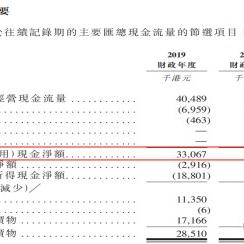Introduction to Digital Services Tax
The Digital Services Tax (DST) is a novel measure introduced by the government of Macau, aimed at catching up with the rapid digitalization of the global economy. The urgency of implementing DST stems from the need to adapt fiscal policy to the modern era. In the digital space, traditional markers of economic activity, such as the physical presence of a business, are less relevant, thus necessitating newer, more precise tax conventions. This article serves as a comprehensive overview of the new Macau DST policy.
Pillars of the Policy
At the core of the Digital Services Tax is the recognition that the current global tax framework must adapt to the increasingly digital environment. By introducing DST, Macau aligns itself with an international trend towards taxing digital services, which are often delivered remotely and contribute significantly to the economy without a physical taxable presence. The three main pillars of the Digital Services Tax policy in Macau are precision, correctness, and detailed tax calculations, ensuring that businesses involved in the provision of digital services are taxed appropriately.
Precision in Tax Administration
Precision within the newly formulated DST framework means the ability to accurately identify and target services that qualify for digital taxation. Macau's DST policy emphasizes stringent criteria for determining which revenue streams should be subject to the new tax, differentiating them from traditional income streams. This strategic precision aims to minimize the scope for ambiguity or confusion in tax assessments, thereby reducing disputes and ensuring fairness for all market players.
Correctness of Tax Assessment
Central to the DST policy is the principle of correctness, implying an obligation to assess and levy taxes accurately and in accordance with relevant laws and regulations. The correctness in Macau's DST is anchored in a robust and transparent methodology, which includes clear delineations between taxable and non-taxable services. This approach reflects Macau's commitment to aligning its fiscal policies with international standards for digital taxation and ensuring that the taxation of digital services is both fair and valid.
Detailed Tax Calculation
The 'digital services tax' in Macau necessitates a detailed evaluation of each tax-paying entity’s contributions. The government has taken steps to craft a system of comprehensive tax calculations, which will apply specific metrics to assess the value generated through digital services. These metrics will be aimed to capture both the nexus (the link to the local economy) and the entity's user base and revenues sourced from Macau. The detailed tax calculations will be transparent and will involve a notification of the taxable basis and the corresponding tax rates applicable to their digital service activities.
Economic Implications of DST
The digital services tax policy is expected to have profound implications on Macau's economy. Firstly, it will broaden the tax base by incorporating digital revenues, which traditionally have remained largely untaxed. This expansion helps level the playing field between traditional businesses and digital enterprises, thereby safeguarding the interests of domestic companies and promoting a more competitive economic environment. Secondly, it signals Macau's adoption of progressive financial strategies and its preparedness to embrace changes driven by digital transformation.
International Collaboration and Harmonization
In crafting its Digital Services Tax, Macau acknowledges the importance of international cooperation and policy harmonization. By aligning with global initiatives that address the challenges of taxing digital services, Macau aims to reduce the likelihood of double taxation, enhance trade relations, and facilitate global business operations. This collaborative approach ensures that Macau's DST is a complement, rather than a hindrance, to the development of a cohesive global tax regime for the digital age.
Challenges and Considerations
Implementing a precise and correct digital services tax comes with challenges. The fast-paced nature of digital services makes it difficult to keep tax policies up-to-date. Moreover, the DST policy will need to constantly evolve in response to technological advancements. On another note, there's a requirement for a careful balance – ensuring that the digital services tax does not stifle innovation or discourage businesses from operating within Macau’s digital space.
Implementation Phase
The implementation phase of the Digital Services Tax in Macau requires a meticulous rollout plan. This plan involves comprehensive stakeholder consultations, including tax authorities, business organizations, and legal experts, to ensure that the interpretation and application of the DST policy are clear and well-understood. Moreover, the Macau government aims to provide ample guidance to help entities navigate the new tax environment, ensuring smooth and fair compliance.
Conclusion
The new Digital Services Tax policy in Macau represents a significant step towards modernizing fiscal strategies. By focusing on precision, correctness, and detailed tax calculations, Macau is preparing to tap into the potential of the digital economy while ensuring that taxation principles keep pace with technological advancements. As the world moves towards a digitized future, Macau's DST policy will serve as a case study for other jurisdictions seeking to formulate their response to the evolving digital services landscape.
















 琼ICP备2023003230号-1
琼ICP备2023003230号-1
还没有评论,来说两句吧...